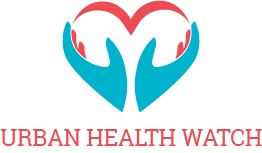According to the CDC, more than 79,500 people in the United States suffer a stroke every year. With such a high percentage, it’s imperative for caregivers to be just as well-versed on stroke recovery as they are for stroke prevention!
Thus, whether you are a home health aide in Boynton Beach or a certified nurse in Palm Beach County, here are five strategies for stroke rehabilitation.
1. Have a preparation session
Before your loved one makes their transition home, it’s important to prepare for what the coming months will look like.
Talk to your healthcare team about the specificities of your loved one’s injury and the potential pathway their recovery may take. Be aware of any potential side effects or adverse reactions to prescribed medication.
Through this preparation, you can use your present to enable a fruitful future!
2. Practice preventative care
It’s important to remember that stroke patients are most at risk to have another stroke within the first year. Thus, it’s imperative that their recovery time places a heavy emphasis on preventative measures. This includes physical activity, healthful meals, and regular check ins with healthcare professionals!
3. Know your physical therapy options
If your loved one is having difficulty moving or suffering from bouts of dizziness, they probably could benefit from a physical therapy regimen.
Do you research on what physical therapy options are available to your loved one. If you already use a homecare service, ask the home healthcare agency what physical therapy options they offer!
4. Remember that every recovery time is different
When entering into the stroke aftercare phase, it’s easy to have preconceptions about how the long recovery time will take. Remember, it’s impossible to predict your loved one’s recovery.
Some stroke patients make dramatic gains as soon as the first month after the stroke. Others see more incremental progress. Thus, it’s important to meet your loved one and their recovery where they are!
5. Consistency is key
Your loved one’s recovery can only be made better by consistent actions towards rehabilitation.
If a stroke has done damage to the neural connections of the brain, the best way to repair these pathways is to strengthen them habitually and consistently!
Help your loved one continue to make a habit of their daily exercises or PT regimen. Remind them that with every hip induction and foot lift, they are actively working towards recovery. Keep in mind, it takes 30 days to enforce a new activity into a habit!
For more information on senior care services contact an experienced nursing agency. They can answer your questions and help with loved ones at what may be a stressful time.
